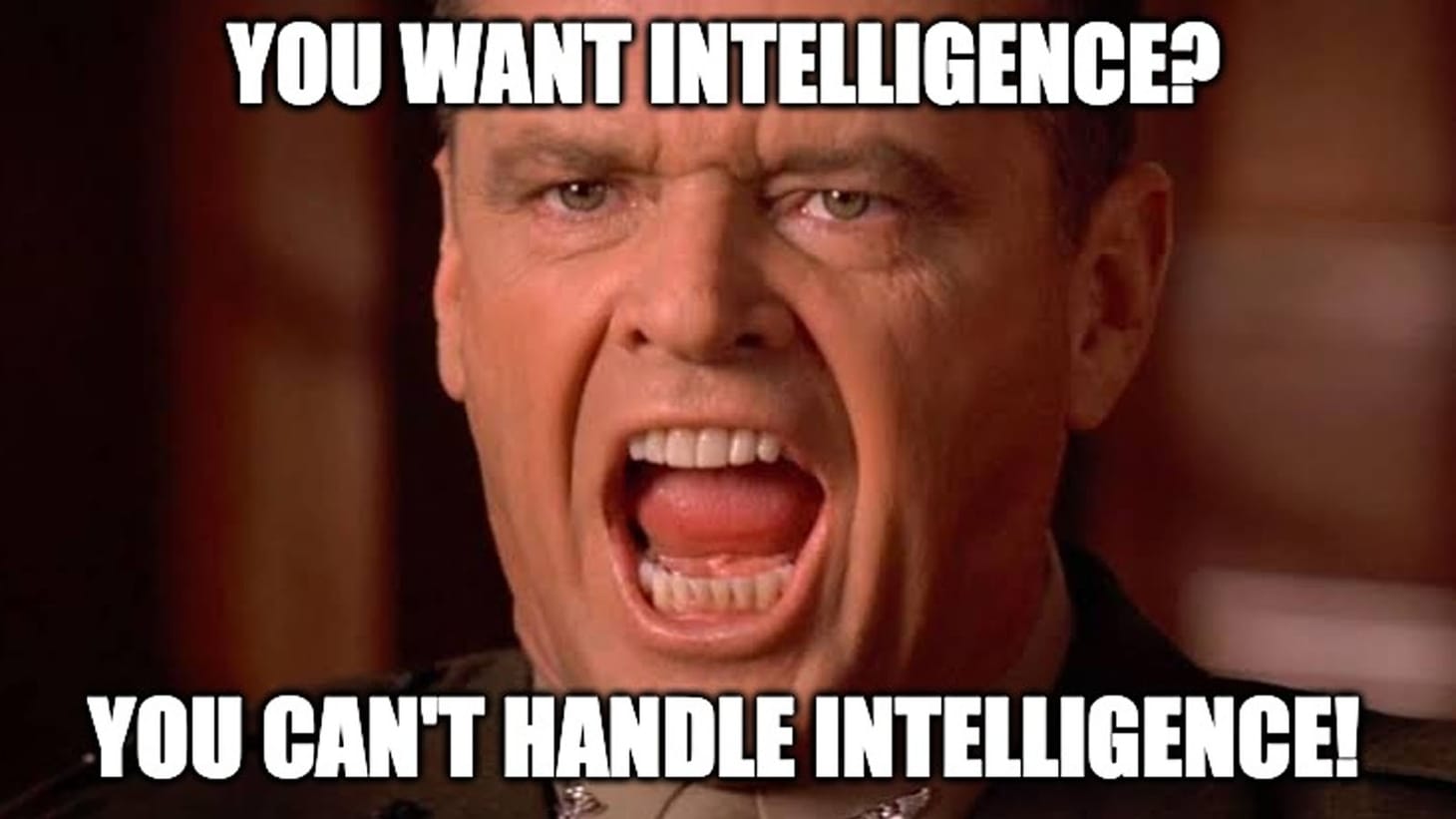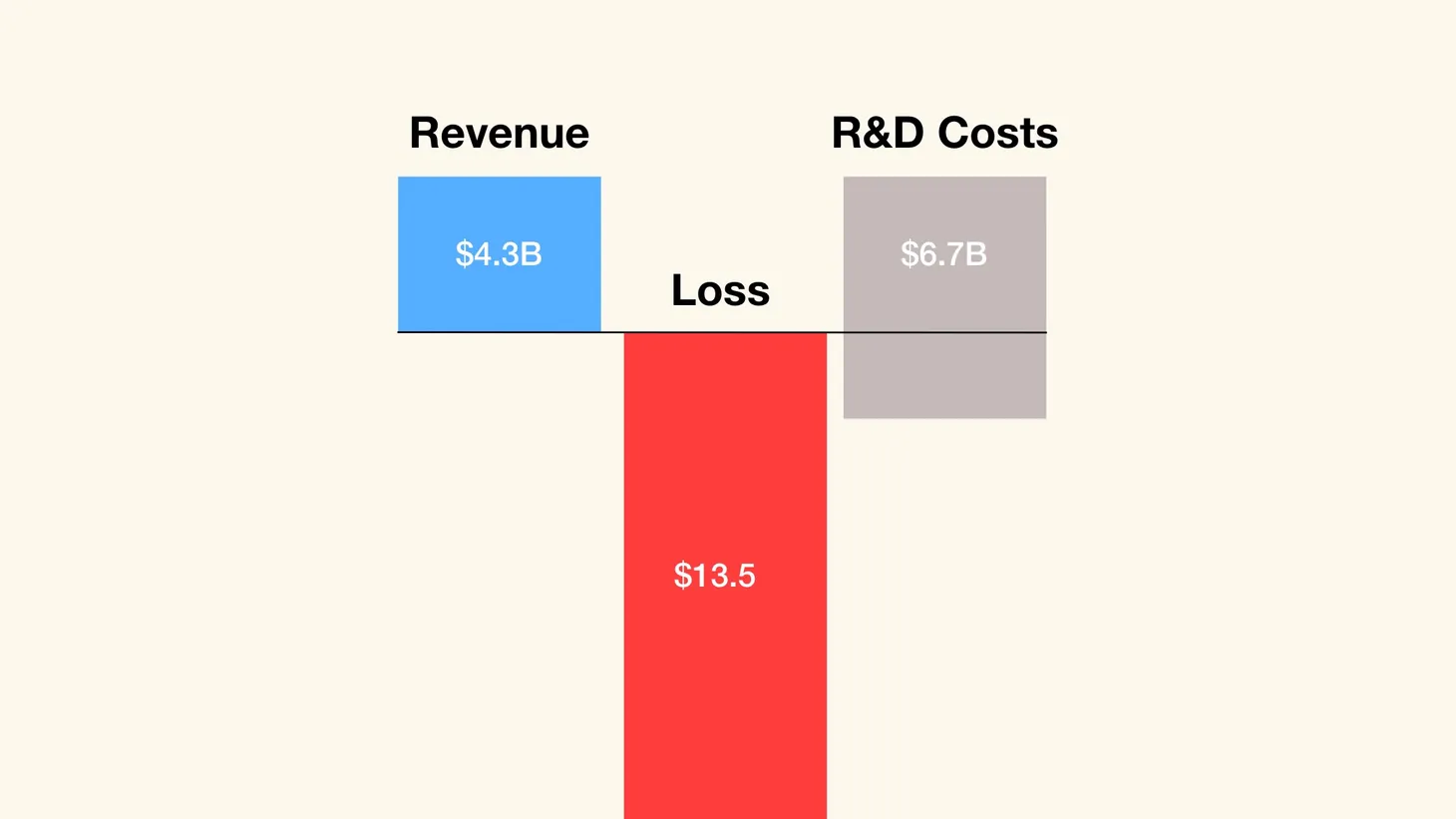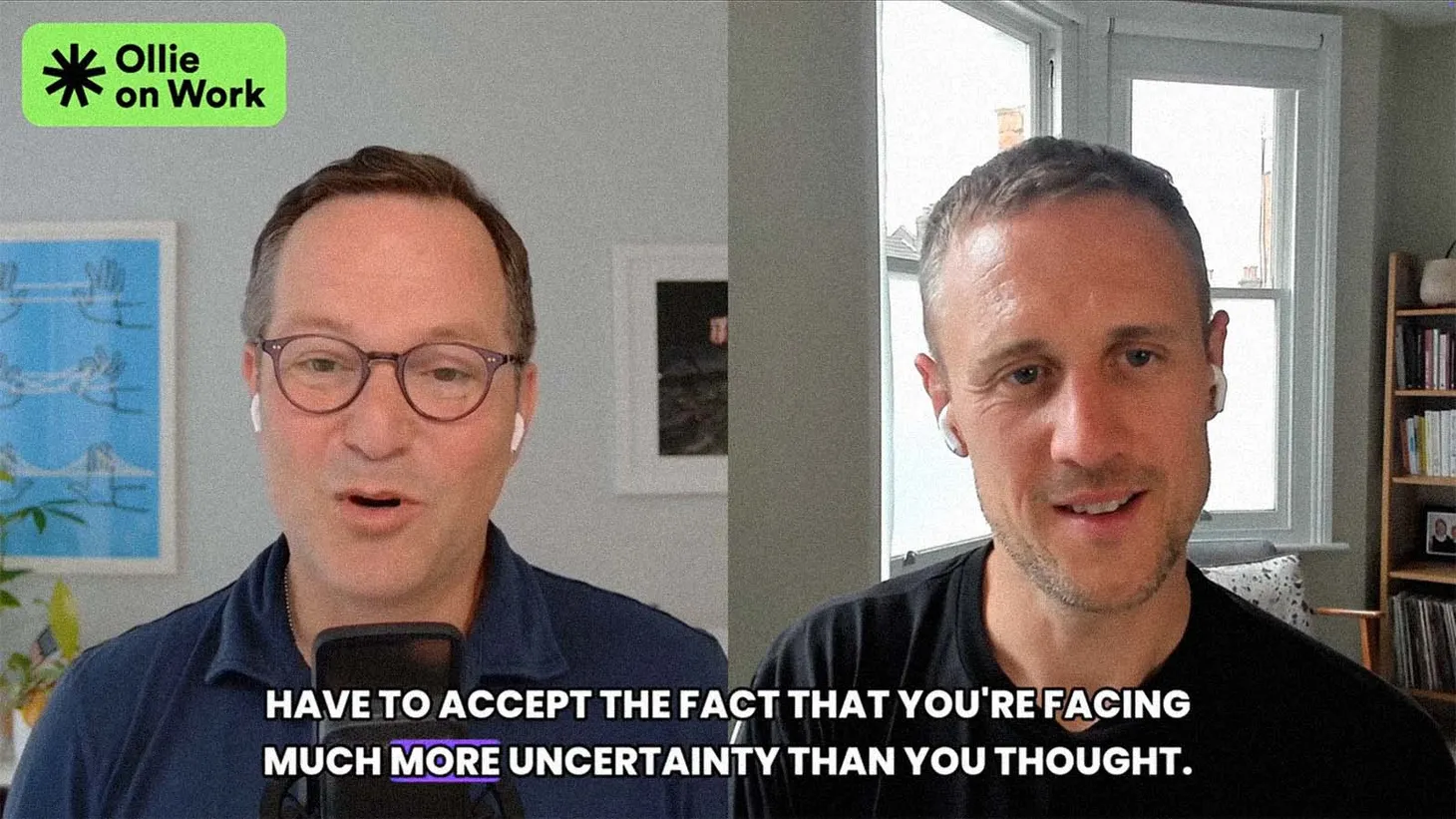You Don't Need AI
Most companies already have more intelligence than they can handle.

Last month, Tamara and I welcomed our third child, a new brother to our daughter and son. Please bear with the intermittent publishing schedule as my brain slowly returns to normal operation.
I look forward to seeing some of you in Napa and Oslo in the coming weeks, as well as in a few private events in between. I would love to add a stop to my European trip in late October — get in touch if you have an event in mind for the week of October 20th.
Microsoft cracks the whip. Kind of. Maybe not.
The media is reporting that "Microsoft is cracking down on work-from-home" and "officially sending employees back to the office." Sounds like game over. Everyone is finally going back to the office. Or are they?
A look at the actual memo sent by Microsoft Chief People Officer reveals a few important caveats. The policy is only planned for next year, not this one. It is phrased as an "expectation" to work at the office for "3 days a week." It only applied to employees who live within 50 miles of an office. Exceptions are available. And teams can set and keep their own policy.
That doesn't sound like "cracking down." It's more like gentle nudging or begging. In any case, even this "expectation" is not yet in force, so we'll have to wait until 2026 to gauge its actual impact.
The HR memo also pre-empts any concerns about using return-to-office as a way of forcing people to resign. "Importantly," it says, "this update is not about reducing headcount."
Microsoft already letting go of thousands of people this year, and seems happy to do so even without a strict RTO policy. Meanwhile, other bosses have shed more light on how things work elsewhere.
Bosses confess about RTO as an attrition strategy
The "Beige Book" is a report published eight times a year by the Federal Reserve, summarizing "anecdotal information on current economic conditions" gathered from "Bank and Branch directors and interviews with key business contacts, economists, market experts, and other sources" across the US.
The latest report states that "contacts in multiple Districts reported reducing headcounts through attrition—encouraged, at times, by return-to-office policies and facilitated, at times, by greater automation, including new AI tools.
CEO's and HR executives never admit that RTO is used to "reduce headcount through attrition." But that's why many of them seem to tell their bankers and investors.
Does JP Morgan know about shrinkage?
Jamie Dimon has been one of the most vocal CEOs about the importance of in-person work. In May 2021, he famously declared that “sometime in September, October,” the company’s office would “look just like it did before.”
In reality, the company allowed many people to continue to work remotely and flexibly, and slashed its Manhattan footprint by a fifth. But don't call it downsizing. While it was letting go of office space, JPMC has always been building a massive new headquarter on Park Avenue. That headquarter is now finally open.
So, everyone's finally back?
Not exactly. As Phil Kirschner points out, the 2018 announcement about the new HQ mentioned it would accomodate 15,000 employees. By 2022, the HQ design release mentioned 14,000 employees. And now that the HQ is built, press coverage mentioned it would welcome only 10,000 employees — a major "shrinkage" of the original plan.
The office does look stunning, decked with all the latest amenities, and with great access to public transport. JPMC is also developing and redeveloping a couple of other buildings nearby, though it is not clear when they would be ready and who would occupy them. For now, all we know is that the company's headcount expanded by more than 60,000 people since 2020, while its HQ shrunk by 33%.
Perhaps, despite Dimon's past rhetoric, the company has accepted the fact that fewer people will be at the office every day, even in the best locations, with the best amenities. As long as the business makes money — and JPMC makes loads of it — everything else is ok.
New York's MTA moves from Depression to Acceptance
New York City's public transport authority is also coming to terms with the lasting impact of remote and hybrid work. As Crain's reports:
Transit officials are apparently acknowledging that the five day, in-office work week is dead. The Metropolitan Transportation Authority plans to launch a daily pass for commuter rail geared toward employees who split their time between their Manhattan offices and home.
The report adds that:
A May survey from the Partnership for New York City found that 57% of Manhattan office workers have returned on the average workday, a scant one percentage-point increase over 2024 and a bit below a 2023 survey result of 58%.
In other words, beyond the anecdotes and corporate PR, the state of office attendance and demand is closer to what it was in 2023 than in 2019.
Mark Cuban needs to get out more
One person that still struggles to notice the office crisis is Mark Cuban. The legendary founder and investor took to Twitter to assuage public concerns about the automation of white-collar work:
If AI is going to destroy white collar jobs first , shouldn’t we already be seeing occupancy declines in office buildings ? Particularly in big cities where large employers are primarily based ?
Or am I missing something ?
Yes, Mark. You are missing something. As The Economist's Mike Bird points out, office vacancy from New York to San Francisco is still higher than it was during the bottom of the Great Financial Crisis. Average rent per square foot has collapsed. And office mortgage delinquencies are dangerously high.
More importantly, all this is happening while America's largest companies are posting record profits and enjoying record valuations. Instead of hiring more people and renting more office space, companies are still slashing both. We have a dot-com-boom economy with dot-com-bust office demand. AI is driving this dynamic in three key ways:
- It replaces some workers completely, but only a small percentage for now.
- It requires massive investment, leading tech giants to cut labor costs in order to invest in AI infrastructure.
- Even without making a direct impact, AI contributes to a deepening sense of uncertainty that delays or diminishes hiring and leasing decisions.
As I wrote last year, "An economy in which most companies can predict their needs in advance and commit to long-term leases is not returning any time soon." And AI is a major driver of things becoming less predictable.
AI is grown, not made
One reason that AI's impact is unpredictable stems from the nature of the technology itself. The "generative" AI models that power hit products like ChatGPT and Gemini do not behave like traditional software. They do not follow a set of pre-defined rules that lead to predictable performance and behavior. Instead, they are probabilistic and chaotic, responding in different ways each time they encounter a question or situation, and showcasing abilities that their own developers did not foresee and cannot fully explain.
As Eliezer Yudkowsky and Nate Soares point out, “modern AI is grown, a bit like an organism. Engineers understand the process that results in an AI, but they don’t much understand the AI that results. In important ways, the undertaking is closer to how a human gets made.”
The similarity to humans highlights another underestimated aspect of AI.
You don't need more intelligence
Most companies don't know what to do with the intelligence they already have. Companies already have plenty of human intelligence that get wasted, under-utilized, and shut down.
Most white-collar workers are not using too much of their intelligence at work, and most managers have no idea how to estimate — let alone actually deploy — the various abilities of their employees.
One can even argue that the modern corporation and work arrangements are tools for the suppression of intelligence: For turning humans into small interchangeable parts, performing narrow tasks. The corporation as a whole is productive, but every component within it is designed for and encouraged not to think too much in order to maintain the overall stability of the whole organization.
It is no surprise, then, that AI's greatest successes so far have been at replacing corporate employees in narrow, low-level tasks such as customer support and data entry. This is not because AI isn't smart enough to take on more complex tasks; it is because corporations are not able and willing to let intelligence do more.
To reap the full benefits of AI's current capabilities, organizations need to be rethought and redesigned. Plugging an artificial or human genius into current work procedures will not make much of a difference.
It is helpful to think of intelligence the same way we think of electricity. If you plug a horse or a plowshare into an electric circuit, nothing will happen. You need to redesign both of them to make any use of this new power source. You probably need to redesign the whole field as well.
Indeed, back when electricity became available, many companies were reluctant to use it because it would require them to make too many changes to their existing business.
And even today, if you gave every company 10X more electricity for free, most of them won't know what to do with it. The same is true for intelligence. AI systems will continue to master new capabilities, but they can already do enough to affect most jobs and industries. The question is what would it take to force companies to change.
See you soon?
In Napa and in Oslo. I'm thinking of stopping by in London, so if anyone wants to put together a quick event — let me know.
Best,

🎤 How will AI reshape our cities, companies, and careers? My speaking schedule for the winter and spring is filling up. Visit my speaker profile and get in touch to learn more.

Click here to book a keynote or learn more.
Old/New by Dror Poleg Newsletter
Join the newsletter to receive the latest updates in your inbox.




